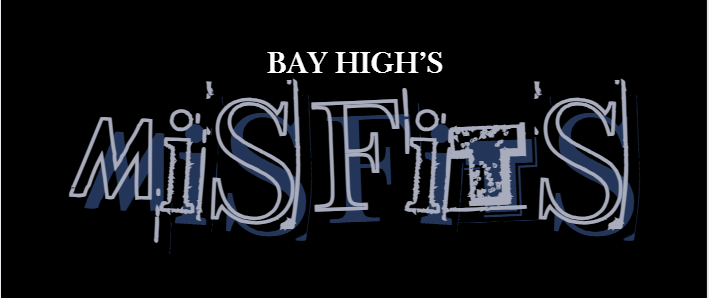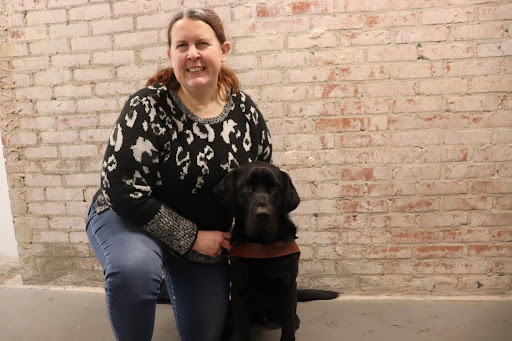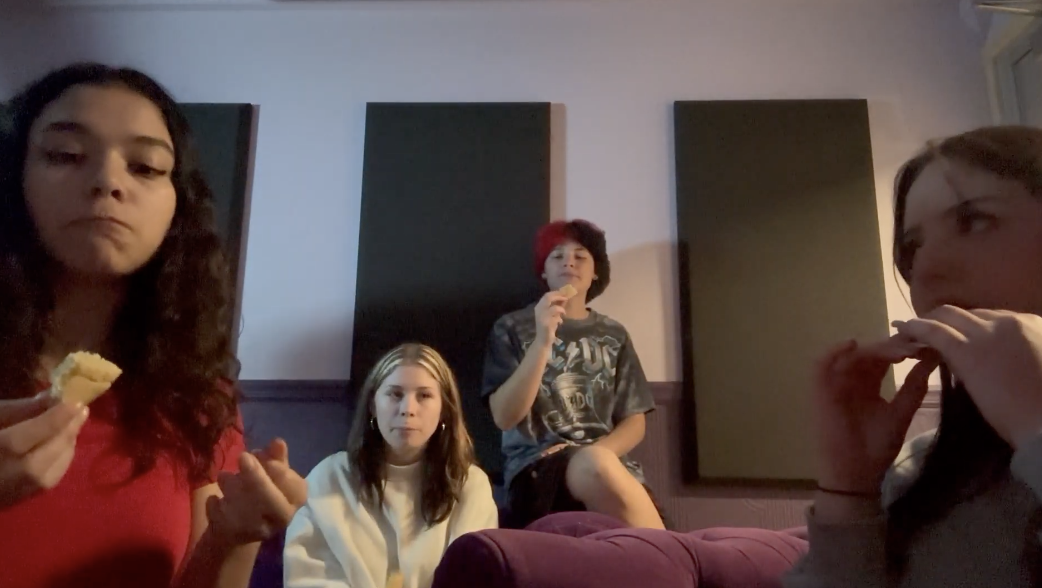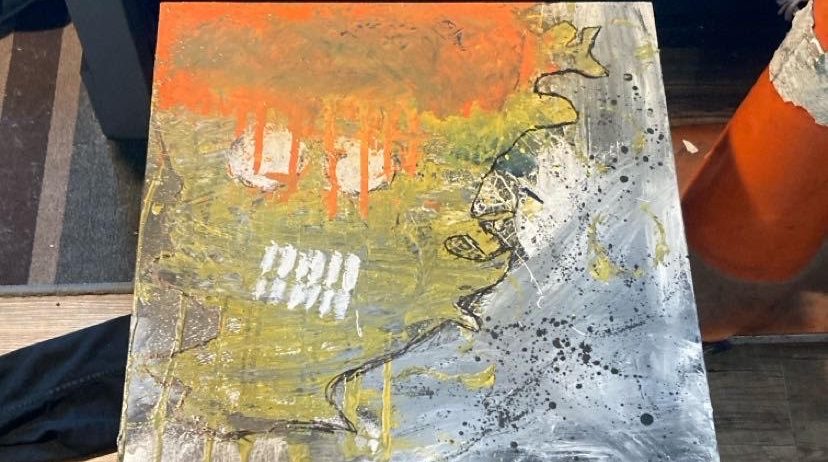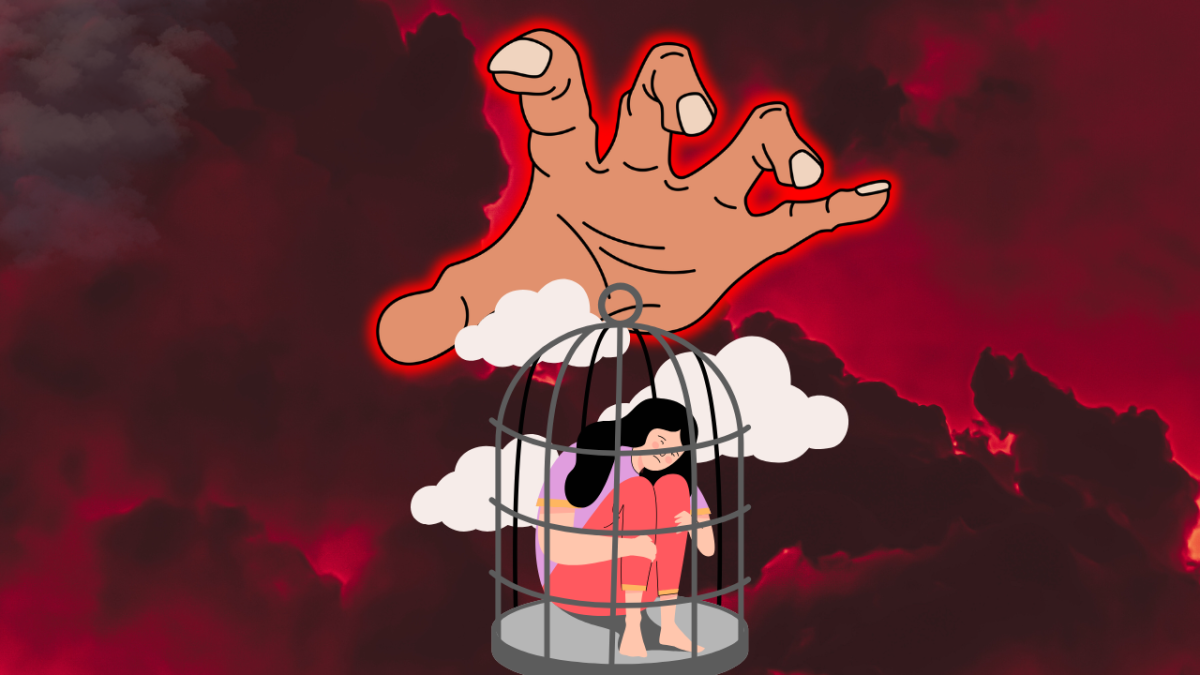Pompey is a self proclaimed “guy who sings about feelings.” The topics of his songs cover a wide range, however his two most popular, Tall Walls, cover eating disorders and body dysmorphia. Throughout this song Pompey shows a compelling understanding of language and literary devices. He illustrates tragic but relatable scenes of ripping clothes and begging to feel smaller, with his melancholic, comforting voice. His messages give definition to the undefinable, and serve as an exemplary model for other lyricists.
Tall Walls, is currently his most listened to song, with 295,594 individuals tuning in. The lyrics largely reflect Pompey’s somatesthesia, the awareness of his own body, and his struggles with that. The first verse opens with the line, “I wish that my walls were taller / So I could feel smaller sometimes.” This introduces the allegory (metaphor also works here) of Pompey’s body being something separate from himself, something non-breathing, and non-living. Particularly, he is using it to showcase his desires for feeling little compared to everything around him. It is often true that the taller you are the harder it is to both notice, and actually gain, any weight due to differences in metabolism, the calories you naturally burn, and fat distribution. The two other allegories he uses are that of being a “big fish” and a “big tree.” All of these aim to showcase the discomfort he feels in his body, a body that has continued to grow to his own dissatisfaction. They represent the contradiction of not wanting your body to do what it was designed to do, grow. We live in a society that is heavily focused on remaining as small and as thin as possible. If you grow beyond your box, you are villainized and mocked as undesirable. Many in such a position gain feelings of resentment, not towards those who harm them, but themselves. Increasingly large amounts of people are relating to this disconnect of what they should and what they actually do look like.
Just before the first chorus, and even in the beginning of the second verse, Pompey writes about his experiences with clothes. He describes how he’s had to learn to sew in the face of the persistent tearing of a pair of pants and what he’d do to be free of this burden. The line, “I’d eat a new pair of pants / For this hole I can’t seem to patch,” discusses how far he’d be willing to go using hyperbole and verbal irony. Saying you are willing to go so far as eating an item of clothing, is very clearly an exaggeration, however it is an important one. Hyperboles exaggerate with a purpose, that being to emphasize the importance of a point. By choosing a hyperbole here, Pompey highlighted the significance the toll of his struggles have had on him. The verbal irony comes from the idea of someone wanting to lose weight, eating more within their journey to achieve said goal. This form of irony works to draw attention to its presence, here, it brings attention to what many would consider a perceived incongruence. It is a negative stereotype used against larger people that they weigh more because they in some way lack self control and therefore eat more.
The chorus, compared to the rest of the song, doesn’t really use much of any particular literary device. However, it remains immensely impactful. This is due to the heavy usage of pathos and connecting to the audience Pompey has used throughout the entirety of the song. The chorus reads, “That I don’t fit / I don’t fit / And I know it / That I don’t fit,” and it essentially lays Pompey’s message out bare. The message that he feels like he doesn’t fit into the rest of society with a body that is bigger and, therefore, unwelcome. The line on its own, though nice, is given its true meaning to the context of the rest of the song. Because the remaining pieces to the song are so descriptive and vivid in their imagery, it makes the simple chorus stand out and help to unify the song.
Ignoring my fanciful use of language and divings into the meaning behind the song, you should listen to Pompey not only for his lyricism, but because he is an artist talking about a topic needing to be discussed. You should listen to Pompey not only for his lyricism, but because he is an artist talking about a topic needing to be discussed. According to the American Society for Nutrition, eating disorders and body dysmorphia are becoming increasingly present in our society, and if, as a society, we would like to fix this, it must first be addressed. This means not only talking about where they stem from, but what these uncomfortable emotions actually feel and look like.
Most importantly though, his music is well made, pleasing to the ear, and does an incredible job with getting you emotional. If you ever feel like getting a good ol’ violent sob in, he’s your guy.
